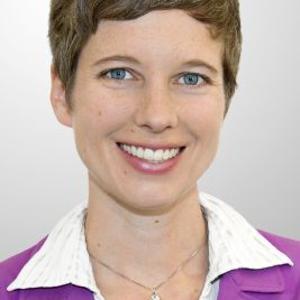Prof. Dr. Julia Pongratz
Chair of Physical Geography and Land Use Systems

Chair of Physical Geography and Land Use Systems

After studies of geography at LMU and the University of Maryland I received my PhD on the early human impact on the Earth system in 2009 at the University of Hamburg and the Max Planck Institute for Meteorology under the supervision of Martin Claussen and Christian Reick. I investigated food security and geoengineering in the lab of Ken Caldeira as a postdoc at the Carnegie Institution’s Department of Global Ecology in Stanford, then returned to the Max Planck Institute for Meteorology as Klaus Hasselmann fellow. In 2013, I was awarded an independent research group on forest management in the Earth system by the German Science Foundation (DFG). In 2018, I moved to LMU as professor for Physical Geography and Land Use Systems. Currently, I am also the Director of the Department of Geography at the Ludwig-Maximilians-Universität in Munich (LMU).
My work focuses on human-climate-vegetation feedbacks in the past and future, drivers of anthropogenic emissions, and vegetation, climate and Earth system modelling. Of particular interest is the question how we can manage the land in a way that allows us to adapt to climate change while at the same time reduces emissions and creates synergies with other sustainability goals. I pioneered work on the pre-industrial human footprint on regional climate and atmospheric greenhouse gas concentrations using complex Earth system models. Subsequent applications - such as simulations of the consequences of large-scale afforestation for the carbon cycle, water flows, and Earth’s energy balance - have been of importance in the context of the Paris Agreement’s goal to limit global warming. My group develops the land-use emission model BLUE and developed innovative approaches to model-data integration, enabling CO₂ emissions from the land-use sector to be quantified with unprecedented detail. My work is published in more than 150 peer-reviewed publications (including 19 in Nature and Science journals). I (have) supervise(d) more than 25 PhD students and Postdocs, with many alumni having become permanent researchers, science managers, or professors.
I have contributed to the last Intergovernmental Panel on Climate Change (IPCC) Assessment Reports as author to Working Group 1 (Physical Science Basis) and 3 (Mitigation), coordinate the land-use emissions estimates in the Global Carbon Budget since 2017 and contribute to the UNEP Emissions Gap Reports. With our Earth system modeling, I have been involved in several Coupled Model Intercomparison (CMIP) projects, in particular am/was part of the scientific steering committees of C4MIP (Coupled Climate Carbon Cycle MIP), LUMIP (Land Use MIP), and CDRMIP (Carbon Dioxide Removal MIP). Other SSC work involves Future Earth's Global Carbon Project and AIMES. I serve on the Board of Reviewing Editors at Science Magazine. I am chair of the German research program CDRterra, in which more than 100 researchers are building the knowledge base on carbon dioxide removal from the atmosphere, enabling Germany to develop sustainable pathways to greenhouse gas neutrality by 2045. Since 2024 I advice the German government as part of the Scientific Advisory Board on Nature-based Solutions. As of 2025, I serve as one of the five members on the Council of Experts on Climate Change, the independent scientific advisory body to the Federal Government that reviews the national greenhouse gas emissions and projections and their alignment with national climate targets.
To facilitate the societal transformation needed to reach the Paris climate goals I communicate my research and explain general issues around sustainability and climate change to the broad public via traditional media, blogposts, and podcasts. I have a regular presence in media including coverage by the largest German TV and print outlets (Tagesschau, SZ, FAZ, Deutschlandfunk... also Washington Post, New York Times, ...), including TV documentaries (arte, SWR). To create the scientific basis that can be used for political decision-making I seek dialogue with actors from industry, politics, ministries, NGOs and associations in events like stakeholder workshops in various third-party funded projects, parliamentary roundtables, UN climate conferences (COPs), or the G7 science minister's summit.
I put a special focus on bringing the latest research to the young generation and empower them to develop an informed opinion. To this end I initiated the development of school material on climate change as part of CDRterra. I frequently visit high schools and engage in teacher trainings to discuss with students and teachers directly. As a university professor, I have extensive teaching duties in the Bachelor's, Master's and education (Lehramt) programs that I use to both convey to students basic science as well as competencies to address global change issues in their future careers. My efforts in innovative interdisciplinary teaching, including developing a climate conference version of Model United Nations, have been recognised with the teaching innovation award of LMU, where I have been the first lecturer to receive it multiple times.